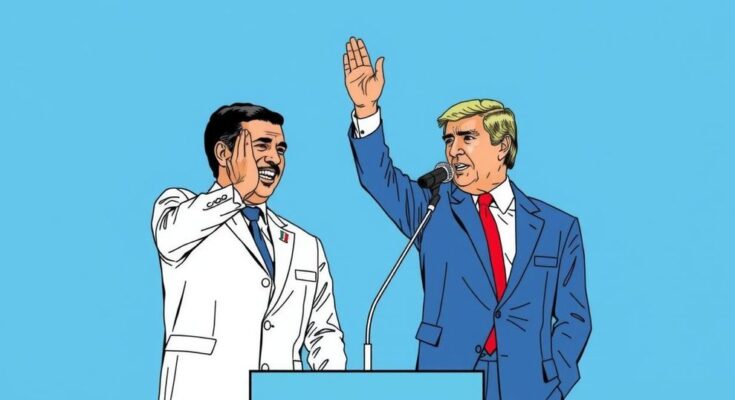Uruguay is preparing for a presidential runoff election between Álvaro Delgado of the National Party and Yamandú Orsi from the Broad Front. After a closely contested first round where Orsi led with 44% to Delgado’s 27%, voter indecision remains high amidst concerns over crime and economic policies. The election highlights significant democratic engagement in Uruguay, showcasing the balance between continuity in governance and the pursuit of progressive reforms.
Uruguayans are poised to return to the polls for a crucial presidential runoff, as none of the candidates secured a majority in the initial voting round. The contest is closely contested between Álvaro Delgado, representing the incumbent National Party, and Yamandú Orsi of the Broad Front, a coalition that previously governed the country for 15 years till 2019. This election cycle reflects significant competition, as Delgado trails Orsi, who garnered 44% of the vote in the first round against Delgado’s 27%, bolstered by strong support from the Colorado Party, a coalition partner contributing approximately 20% of the votes.
Low voter indecision signifies a shift in Uruguayan politics, influenced by the candidates’ lack of distinctive campaigning and the absence of charged anti-establishment sentiments. Despite issues around taxation and social spending often dominating discussions, the election notably lacks the high-stakes framing observed in recent U.S. elections. Analysts observe that concerns about rising crime rates have permeated the narratives from both candidates.
Álvaro Delgado’s campaign positions him as a continuation of President Lacalle Pou’s legacy, amplifying a pro-business agenda aimed at maintaining economic stability, characterized by forecasted growth rates from recognized bodies like the International Monetary Fund. Meanwhile, Yamandú Orsi emerges as a candidate seeking to recapture the progressive essence of his political predecessor, advocating for policies intended to stimulate investment and offer social security reforms.
The political atmosphere has been framed as a normalized electoral experience, indicative of Uruguay’s robust democratic governance, reflecting the electorate’s yearning for competent leadership amid historical legacies and contemporary challenges.
In the framework of Latin American politics, Uruguay stands out due to its significant evolution toward a social democracy over the past decades, particularly under the governance of the Broad Front coalition. This political shift saw the implementation of progressive policies concerning social rights and economic freedom. The current election underscores a period of political transition where the incumbent coalition attempts to retain power against a backdrop of rising crime and public concerns regarding welfare policies, revealing both continuity and change within the nation’s democratic processes.
The impending presidential runoff election in Uruguay is characterized by significant voter engagement and an intriguing battle between competing political ideologies. The close contest between Álvaro Delgado and Yamandú Orsi underscores vital issues facing the electorate, such as economic policies, social welfare concerns, and a prevailing increase in violent crime. This election serves as a testament to the enduring strength of democracy in Uruguay, allowing for a diverse representation of political thought amid its evolving landscape.
Original Source: abcnews.go.com




